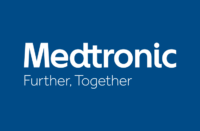Recardio Inc., a life science company developing regenerative therapies for cardiovascular diseases, announced that the results of the interim analysis of Recardio’s Phase II clinical trial will be presented at the 2020 Congress of the European Society of Cardiology from August 29 through September 1.
SAN FRANCISCO, June 29, 2020 /PRNewswire/ — Entitled “Randomized, Double Blind, Placebo-Controlled, Safety and Efficacy Study of Dutogliptin in Combination with Filgrastim in Early Recovery Post-Myocardial Infarction: rationale, design and first interim analysis”, the presentation provides an initial insight into patient outcomes of the trial that is currently ongoing in multiple centers. Patients included in this trial experienced a severe form of Myocardial Infarction known as STEMI. Soon after the initial intervention to re-establish adequate blood flow to the coronary arteries, patients begin a two-week treatment with Recardio’s dutogliptin, a small molecule that enables sustained homing of mobilised stem cells to the site of cardiac injury. By releasing paracrine factors, stem cells have been shown to have significant repair and regenerative effects that improve healing and recovery of cardiac function after the infarction.
More information about the clinical program is available by visiting the “clinicaltrials.gov” website at the following link: https://clinicaltrials.gov/ct2/show/NCT03486080
About Recardio
Recardio Inc. is a clinical-stage life science company focusing on therapies for cardiovascular, oncology and infectious diseases. The company is located in San Francisco, California, and has operations in the USA and Europe. The company’s lead drug candidate, dutogliptin, is a DPP-IV inhibitor that has demonstrated significant effects in activating various chemokines like SDF-1, a protein that is critical for cardiac regeneration. In addition to its current Phase 2 cardiovascular clinical program, Recardio will fully develop the therapeutic platform as a regenerative medication for patients with various cardiovascular diseases including acute myocardial infarction and chronic heart failure, with the potential of improving heart function, quality of life and survival.
For more information, visit: http://www.recardio.eu/ or contact pr@recardio.eu
SOURCE Recardio






